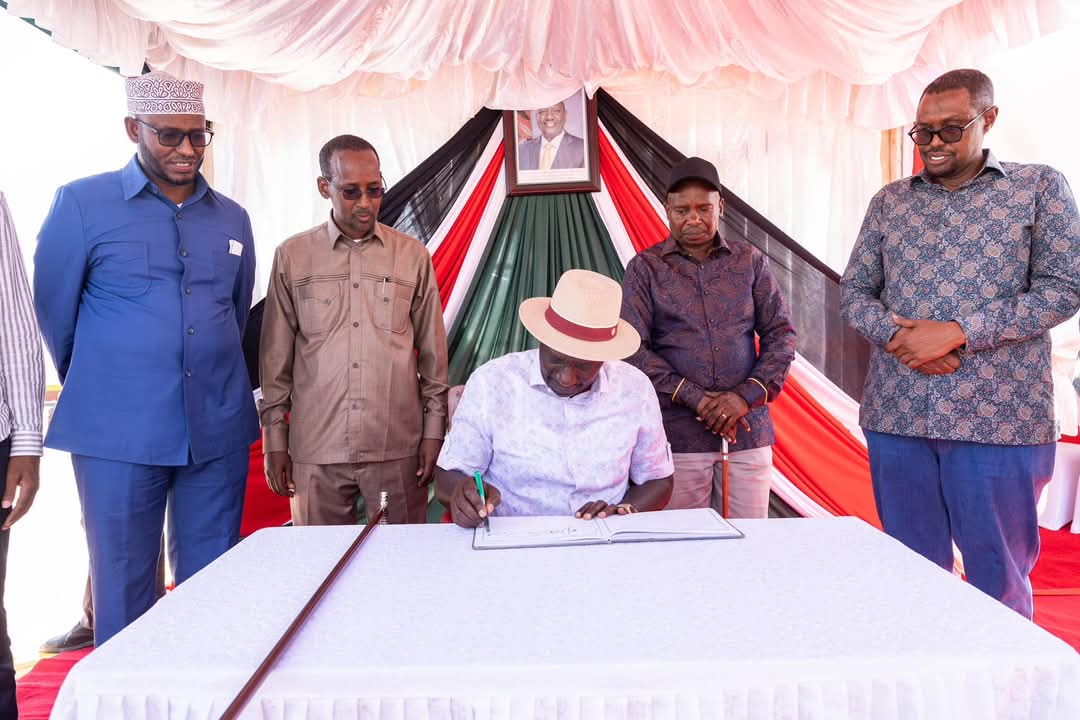

Ordinarily, reversing a policy decision that for many years had denied citizens their inalienable rights should be celebrated as a positive step in safeguarding the basic rights of Kenyans.
However, the recent directive by President William Ruto to abolish the national ID vetting policy for residents of the North Eastern region has instead ignited a wave of criticism among a section of Kenyans.
Soon after signing the decree, many leaders came out to criticise the presidential decision, arguing that his move would pose a threat to national security and make the country more vulnerable to terrorism.
Unfortunately, for many years, national security has been used as the perfect excuse to trample upon and sti e citizens’ rights.
Ruto’s move was a fulfillment of his election promise and the persistent calls from area leaders and the wider Muslim leadership to put an end to the vetting.
The draconian policy, which leaders maintain is discriminatory, had been one of the main hindrances preventing many Muslim youths from obtaining national identity cards and passports.
While, on paper, the policy was meant to prevent foreigners from border regions from being registered as Kenyan citizens, Somali and Muslim applicants were required to face a multiagency committee to prove their Kenyan citizenship.
Additionally, while for other Kenyans the production of a baptismal card and a parent’s ID is sufficient proof of citizenship, Muslim applicants were required to provide additional documents, including parents’ birth certificates, grandparents’ IDs, and, in some cases, land title deeds and even a vaccination confirmation to prove their citizenship.
Even with these requirements, obtaining the documents was not guaranteed, as many applicants found themselves waiting for years without the crucial identity papers.
While residents of the North Eastern region celebrated the abolition of the policy—viewing it as the removal of one of the last vestiges of marginalisation in the area—others saw a sinister motive.
A Nairobi-based advocate, incensed with the move, even threatened to go to court to seek an annulment of the order.
The President followed up on the directive with the reopening of the Garissa Immigration Office, which had been closed for more than a decade.
Like other immigration centres in Kericho and Nakuru, the office is intended to bring services closer to the people, ending the struggle where residents were forced to travel hundreds of kilometres to Nairobi to access this essential service.
For community leaders, the vetting policy was a clear example of discrimination that, for many years, had denied a section of Kenyans their due rights.
“Most Muslims from the northern side of Kenya cannot get jobs because they don’t have IDs, they can’t travel, and they are seen as a security threat,” said the Supreme Council of Kenya Muslims chairman Hassan Ole Naado.
During his tenure in Parliament, former Kisumu Town MP Rev Ken Nyagudi highlighted this blatant discrimination when he brought a case before the House involving two of his constituents from the same family who had applied for national IDs.
He pointed out that while one applicant, a Christian received his ID, the other—because of his Muslim faith—had his application rejected.
Without identity papers, accessing essential services such as education, healthcare, employment, and even travel within or outside the country becomes a major challenge and could lead to individuals being labelled as undocumented foreigners.
In 2011, the executive director of Muslims for Human Rights, Khelef Khalifa, fled a case at the High Court in Mombasa seeking the abolition of the vetting policy.
In his ruling, Justice Jackton Ojwang declared that vetting was discriminatory as it did not conform to the new constitutional dispensation, which guarantees all Kenyans their basic rights.
Despite this ruling and numerous complaints from Muslim leaders, successive regimes maintained the policy.
The President’s move is a commendable step in response to persistent calls to end this discriminatory process. Kenyans from all backgrounds should support such initiatives that align with the constitution, promote integration, and foster national unity.
Somalis, Nubians, and other Muslim communities are an integral part of this nation and are patriotic citizens who have contributed immensely to Kenya’s socioeconomic development.
For years, they have struggled to be recognised as Kenyan citizens, and they need all the support necessary to reclaim their rights.
Claims that the abolition of the policy will open floodgates for foreigners and criminal elements to obtain Kenyan identity documents are nonsensical, as the government will aptly put in place adequate measures to ensure that only genuine Kenyan citizens with relevant documents are granted national IDs.
Regarding national security concerns, it is a fact that bad apples can be found in all Kenyan communities. The worst acts of mass killings in this country were not perpetrated by Somalis, Muslims, or Nubians, but by a Christian pastor—Paul Mackenzie—of the infamous Shakahola Massacre.
Abu Ayman Abusufian comments
on topical issues










